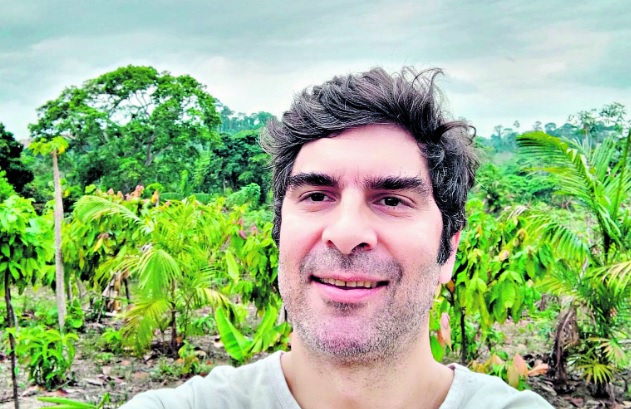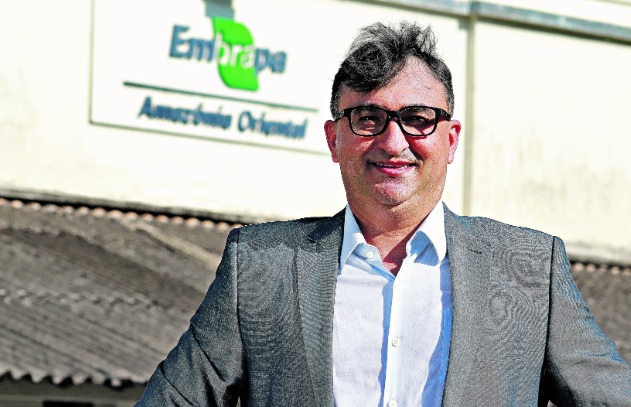The task of finding solutions to limit global warming involves the paths indicated by science. Based on research, science plays a fundamental role not only in understanding the current scenario and the urgency it imposes, but also in contributing to the development of solutions to the climate issues that the Amazon region is suffering from.
For the President General of Embrapa Amazônia Oriental, Wakimário Lemos, science and scientific research have always been engines that drive transformations in almost all societies. “We believe and advocate that science will be one of the great agents to offer alternative solutions to the climate issues that are currently being expressed in different parts of the world, but how can science contribute to this offer of solutions? First, as an educational form. Through the knowledge that science generates, we disseminate correct information about the real impacts that these climate changes have had on both rural and urban areas.
Another aspect of the contribution of science highlighted by Wokimario is the possibility of generating knowledge, indicators and metrics that demonstrate human intervention through different production models, as well as explaining how these metrics can help decision makers identify the best options. “Science must always be the driving force for the best definitions. It will be science, based on this knowledge, that will offer, through experience, through scientific experiments, production models, whether in the countryside or in the city, that are more efficient in the use of energy and its non-renewable forms of resources. Therefore, science will be the big difference in offering the best solutions related to climate issues, not only in the Amazon region, but throughout the world.
In the case of the Amazon region in particular, the CEO of Embrapa Amazônia Oriental believes that the models developed need to be adapted to the specificities of the region. “There is a very strong need to find solutions to climate issues in the Brazilian Amazon that necessarily include issues that take into account the specificities of the region,” he points out. “What we advocate is that many of the innovations developed to mitigate gas emissions present in other parts of the planet will undoubtedly require adjustments and measures based on the local reality, typical of the region.”
📷 Embrapa is conducting a series of environmental researches. |Photo: Mauro Angelo
Want more news about Barra? Visit our WhatsApp channel
Moreover, the researcher believes that science needs to consider the knowledge of traditional people. “Another relevant aspect in our understanding is the need, in these researches and studies, to integrate the traditional knowledge of our people who are here once and for all because we will not only bring a special cultural identity, but we will also be able to use this traditional knowledge of theirs so that we can introduce more modern models of science for practices that can efficiently conserve our main forest resources, including the forest.
Rodrigo Freire, who works for the NGO The Nature Conservancy (TNc do Brasil) and is now executive secretary of the Amazon Restoration Alliance – a group of more than 130 institutions and actors from the Brazilian Amazon who have come together to discuss how to preserve the Amazon forest, as well as how to help restore what has been deforested and degraded – also highlights the essential role of science in the fight against climate change.

📷 Rodrigo Freire works for the NGO The Nature Conservancy (TNc) in Brazil. |(Image: Disclosure)
To combat them, he believes it is essential to understand the impacts that are already being felt. “Research and science are crucial to help us understand the problems that are happening. They help us understand what is happening in terms of observations, satellite images, sensors and why.” “We are seeing dramatic climate events and we will understand that humans have changed the pattern of ecological stability on the planet, mainly through large emissions of greenhouse gases. So science is fundamental and essential for us to understand the current context of our planet, our ecosystems, the Amazon forests, and also to know what needs to change and how to change it. Academia, science and innovation are essential to all of this.
📷 |Photo: Diario do Barra

“Hardcore beer fanatic. Falls down a lot. Professional coffee fan. Music ninja.”






More Stories
The law allows children and adolescents to visit parents in the hospital.
Scientists pave the way for the emergence of a new element in the periodic table | World and Science
Can dengue cause hair loss? Expert explains how the disease affects hair